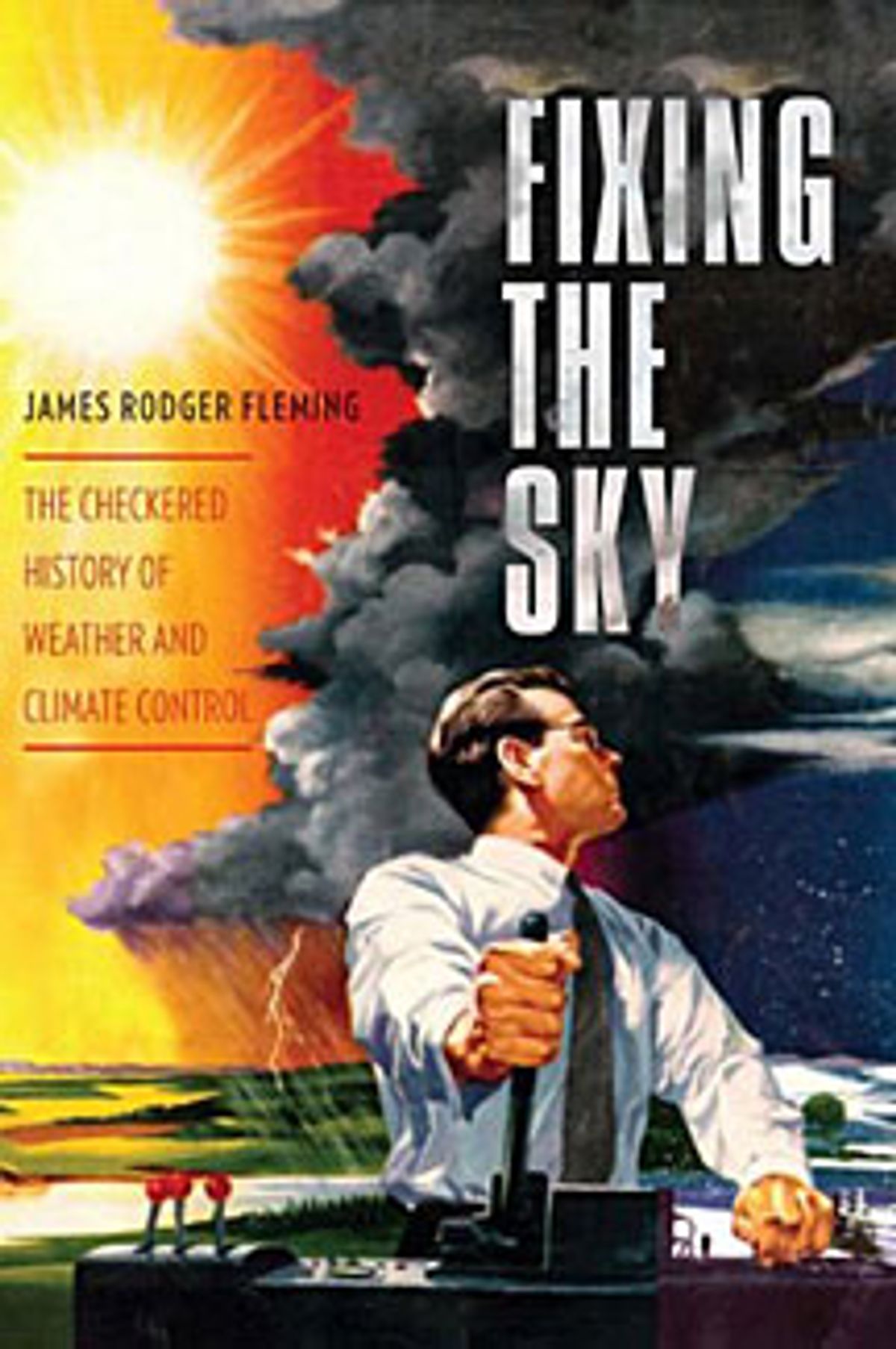By James Rodger Fleming, Columbia University Press, 2010; 344 pp. (hardcover); US $27.95; ISBN: 978-0-231-14412-4 (book); 978-0-231-51306-7 (e-book)
[Right] Merchants of Doubt: How a Handful of Scientists Obscured the Truth on Issues From Tobacco Smoke to Global Warming
By Naomi Oreskes and Erik M. Conway; Bloomsbury Press, 2010; 368 pp. (hardcover); $27.00; ISBN: 978-1-59691-610-4
"The trouble with Americans," said Adlai Stevenson, a U.S. presidential candidate in 1956, "is that they haven’t read the minutes of the previous meeting." Naomi Oreskes and Erik Conway pick that statement as an epigraph to their book, Merchants of Doubt, but James Fleming, author of Fixing the Sky, might have chosen it just as well. Both books offer minutes to some of the contentious meetings in which science has collided with policy, and in so doing, they provide calming perspectives on some of today’s raging debates.
Contrary to what you might infer from the titles, neither book is primarily about climate. Fixing the Sky is almost entirely about the history of weather modification schemes, while Merchants of Doubt mainly concerns missile defense, acid rain, ozone depletion, and secondhand tobacco smoke.But both books draw well-tempered conclusions about climate policy from those subjects.
Fleming talks disarmingly in his preface about how, after taking one flight too many into the eye of a storm, he gave up a budding career as a meteorologist for the safer world of science history. He immediately inspires confidence with what for my money is the most authoritative concise treatment of the pioneering climate theorists and experimenters of the 19th century—Fourier, Ekholm, Arrhenius, and Callendar.
What follows is a detailed and absorbing account of humankind’s invariably unsuccessful attempts to modify and control the weather. His very civil but unexciting conclusion: Forget for now modifying something we don’t understand well, and adopt a sensible global program of greenhouse-gas reduction and adaptation.
"Some have asked if the risk of geoengineering is worse than the risk of global warming," Fleming observes. "I think it just might be."
Essentially, the same moral would seem to follow from the case studies by Oreskes and Conway. Their message, in a nutshell, is that a handful of scientists have repeatedly made it their business to cast doubt on scientific findings that seem to imply the need for governmental action. What’s especially disconcerting—at least in the debates over acid rain, ozone depletion, and climate change—is that it’s been the exact same small group. That strongly suggests that its members are motivated not by expertise in the subject at hand but by ideological prejudice.
Oreskes and Conway do a good job of showing where skeptics have been getting their arguments, though they do not really explain the singular viciousness of the climate debate. But even so, here, too, there is much of interest to learn along the way. Some climate contrarians, for example, paint the Intergovernmental Panel on Climate Change as some kind of internationalist organization trying to foist its socialist ideas on the United States. Actually, say Oreskes and Conway, it was the brainchild of Robert T. Watson, a former Jet Propulsion Laboratory chemical kineticist who ran NASA’s upper atmosphere research program. To borrow a trademark phrase from the late comedian Johnny Carson, I did not know that.
For more book reviews, see the full list.
This article previously appeared online in March 2011.


